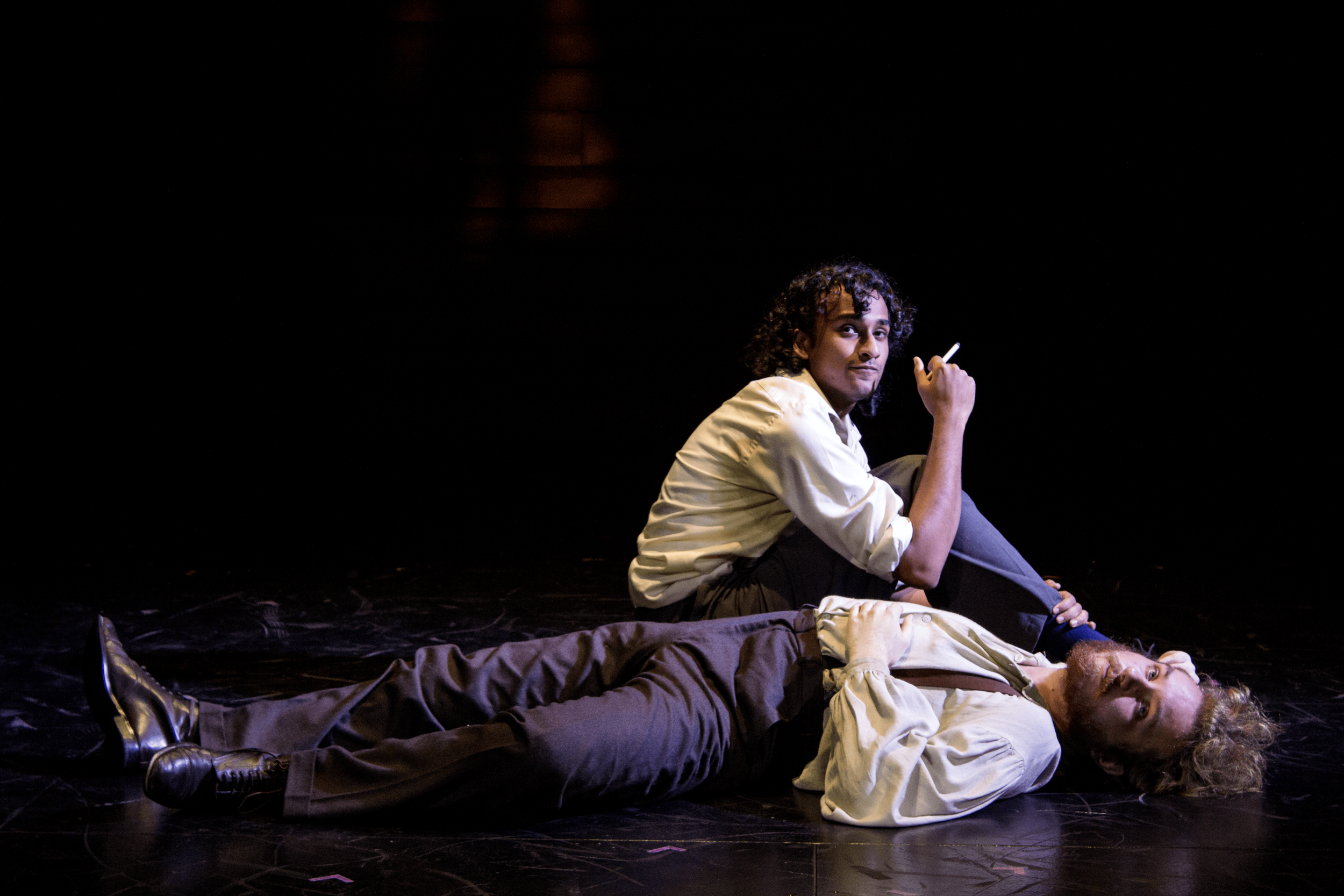
BAAL
by Bertolt Brecht
Arthur Wagner Theatre
UC San Diego
San Diego, CA
June 2022
“Our own period, which is transforming nature in so many and different ways, takes pleasure in understanding things so that we can interfere. There is a great deal to man, we say; so a great deal can be made out of him. He does not have to stay the way he is now, nor does he have to be seen only as he is now, but also as he might become. We must not start with him, we must start on him. This means, however, that I must not simply set myself in his place, but must set myself facing him, to represent us all. This is why the theatre must alienate what it shows.”
— Bertolt Brecht, from “A Short Organum for the Theatre”
BAAL is a play obsessed with bodies. A text that is driven by the consumption, decay, and destruction of bodies, Bertolt Brecht’s first full-length play follows the anti-hero Baal as he manipulates, charms, and assaults his way across the German countryside. BAAL is a text written in reaction to the artistic movements of both romanticism and expressionism—both of which Brecht ended up rejecting as a theorist and practitioner, leading to his development of the epic theatre movement. The play was written during the final months of World War One, and the horrors of war-torn Europe certainly marked Brecht’s exploration of the poetic, the erotic, the religious, the economic, the violent, and the masculine as intersecting themes.
The questions this play raises are not limited to moral quandaries; it is easy enough to recognize why the actions Baal takes toward and against those he is able to seduce are disgusting and morally reprehensible. This play asks of its characters and of its audience, how do we consume each other? How are our everyday relationships transactional? Even as we recognize the monstrous and the grotesque, what is it that fascinates and seduces us? Why does this power go unchecked? And how are we complicit in its continued existence?
BAAL is a play is meant to disturb—not simply for the sake of spectacle or cheap shock, but to frame the insidious, consumptive nature of so many of our relationships. While there are no easy answers to the questions this play asks—and purposefully so—our team viewed the text’s messiness and moments of deep uncomfortability as sites for critical engagement. If art is a hammer with which to shape reality, BAAL is a play that comes in swinging—and we encouraged our audiences to consider how they can take up their own hammers.
SCENIC DESIGNER: Tess Jordahl
LIGHTING DESIGNER: Russell Chow
SOUND DESIGNER: Kaci Koelker
COSTUME DESIGNER: Caprice Shirley
PRODUCTION STAGE MANAGER: Ruby Hays
ASSISTANT DIRECTOR: Emma Brady
DRAMATURG: Mia Van Deloo
PHOTOGRAPHY: June Nyong’o






